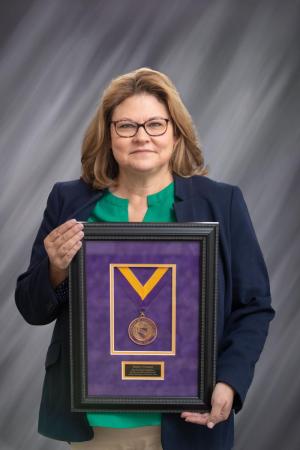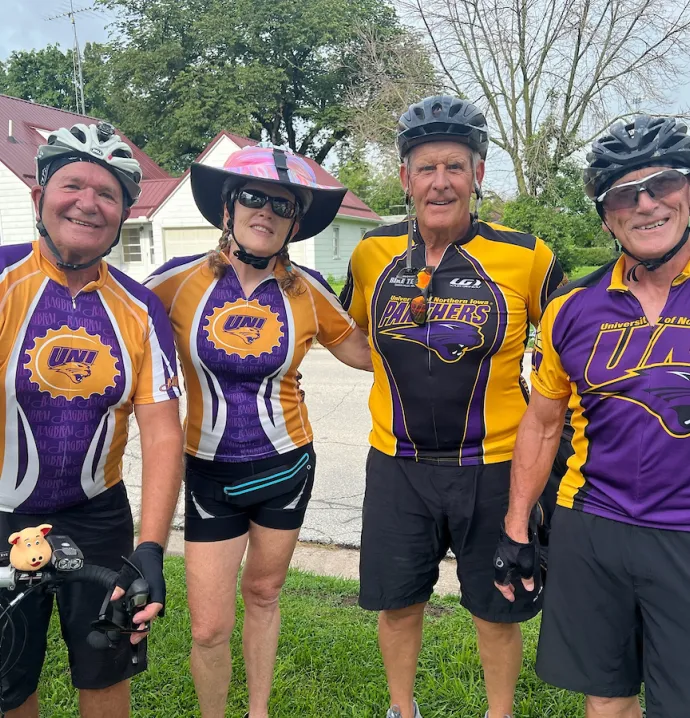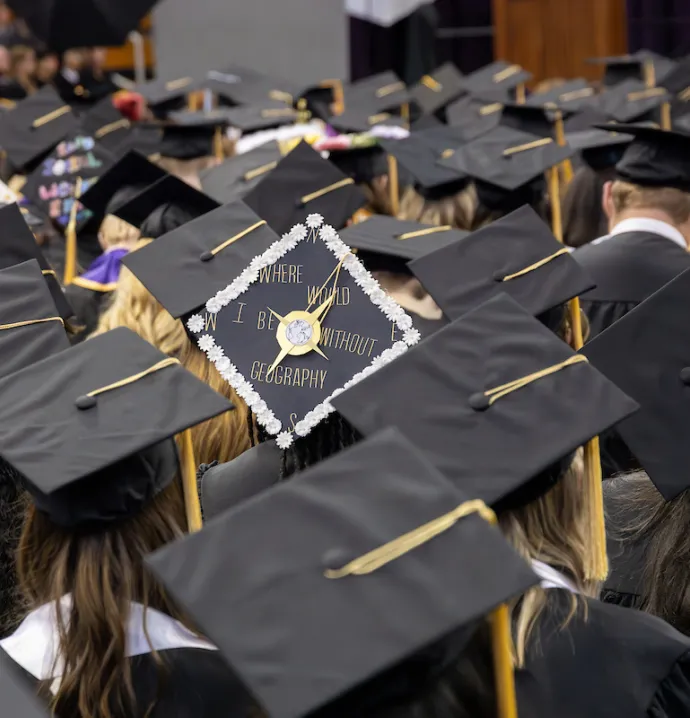O'Connell's COVID response efforts draw presidential praise
O'Connell's COVID response efforts draw presidential praise
 In early 2020, as COVID-19 had just begun its spread across Iowa, Shelley O'Connell instinctively knew that testing students for the virus—and doing so in a timely fashion—would be the key difference between the University of Northern Iowa launching its fall semester or not opening back up at all.
In early 2020, as COVID-19 had just begun its spread across Iowa, Shelley O'Connell instinctively knew that testing students for the virus—and doing so in a timely fashion—would be the key difference between the University of Northern Iowa launching its fall semester or not opening back up at all.
As the executive director of student health and wellbeing and a member of the Forward Together Steering Committee, O’Connell was instrumental in signing a contract to get COVID-19 rapid tests from Abbott Labs onto campus by mid-July 2020. The tests had a 97% accuracy rate and could show results within 15 minutes.
"We were very fortunate to be able to sign a contract right out of the gate," she said.
UNI would become one of the first universities in the Midwest to have the kits available to the student population—a minor miracle, considering the U.S. at the time was still many months away from viable COVID vaccines.
"I never thought we wouldn’t do it,” she said of the launch of the fall 2020 semester. "I knew my team. I knew the health clinic. I knew my colleagues around the table. We have this cohesiveness and we laugh about things—we have to, really, because we would probably cry if we didn't laugh.”
Because of O’Connell’s role in helping campus access COVID tests and more, President Mark A. Nook honored O'Connell with a Presidential Medallion in August. This new award recognizes UNI faculty and staff for their exceptional service.
Uni “Shelley recognizing the importance of testing so early on in the pandemic has been crucial to the safety and success of our students at UNI,” Nook said. “Today, rapid tests play a crucial role in slowing the spread of COVID-19, but in 2020, not many people even realized they were an option. We’re very grateful that Shelley was so proactive in that area.”
While O’Connell’s assistance with testing played a major role in UNI’s COVID response, it’s far from the only way she’s aided the university. O’Connell has served as a liaison between UNI and local health organizations and helped interpret and implement campus guidelines based on those being issued by the Centers for Disease Control and Prevention on a nearly weekly basis in mid-2020.
O’Connell was also instrumental in establishing a contact tracing system, a task made particularly difficult due to the close-quarters environment of a modern-day university, with an abundance of classrooms, study halls and dormitories.
According to O’Connell, everything was integrated together so they knew what student was in what class and was sitting next to them at any given moment of the day. That way, should a person test positive for the coronavirus, everyone around them could be notified and quickly go into quarantine.
To an outsider, the process might sound simple. In reality, O'Connell will tell you it was anything but easy, even as someone with over three decades of healthcare experience.
When the university chose the location for the all-important COVID testing site, O’Connell recommended a spot inside the campus health clinic building. She knew there needed to be a separate entrance to ensure testing could be provided safely. Those rooms are still in use today.
"Again, it was just this whole coordinated effort to be able to ensure that our campus stays healthy and safe,” she said. “You know, our students wanted to continue to go to school here and get their education here because on top of everything else, we had to make sure that continued to happen," she said. "We knew the students still needed their college experience, but at the same time we had to make sure they were safe and that it was enjoyable and engaging.”




